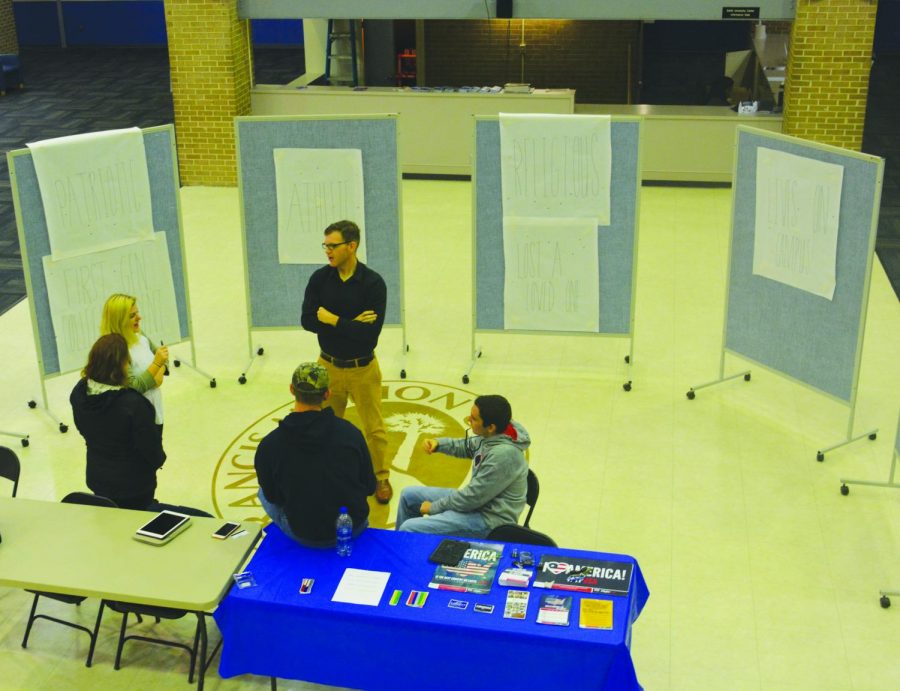Offices and organizations encourage campus unity
Photo by: Caleb Reeves
During Unity Week, organizations partner to promote unity among differences in cultures, political views and sexual orientations.
FMU offices and organizations hosted Unity Week with the goal of uniting students with an acceptance of people with different perspectives, including different cultural backgrounds, sexual orientations and political affiliations.
From Nov. 6-9 the Office of Multicultural Affairs, Multicultural Advisory Board (MAB), Gender Sexuality Alliance (GSA), College Republicans, College Democrats and Turning Point U.S.A. hosted different events. Each event focused on how understanding the perspectives of others contributes to unity within FMU.
Student Life Specialist and Student Ombudsman Michael Barfield orchestrated Unity Week. He said the goals of this week are important for every college campus to be aware of, which is why he aims to host Unity Week at least once a semester. This focus on unity caused the name to be changed from its former name, Civility Week.
“We’re changing Civility Week to Unity Week because we want to focus on uniting the campus and our student population,” Barfield said. “While our campus is very diverse, there are a lot of different walks of life and cultures. We want to focus on becoming one student body. Every campus can learn from this about unity, civility and respecting one another. It’s one of those things where you can always learn more.”
The first event of the week was the Unity Games. For this event, Barfield held an interactive lecture that sought to inform the student body of the importance of learning different perspectives and how that can help unite students.
On Tuesday, the Office of Multicultural Affairs and MAB hosted a Cultural Connections event. According to Barfield, the event informed students about different cultures, to give them insights into perspectives of these various cultures.
“Cultural Connections was a diverse panel discussion that informed the student body about the lives and hardships of different cultures from around the globe,” Barfield said. “This will allow our students to understand perspectives of different cultures, as well as give them the opportunity to learn how they may relate to the cultures represented.”
GSA hosted Question the Queer, which gave students insights into the standpoints of the LGBTQ community, according to Barfield.
“Question the Queer was a diverse LGBTQ panel that informed the student body about the lives and hardships of all walks of sexual orientations,” Barfield said. “This will allow our students to understand perspectives of the LGBTQ community, as well as give them the opportunity to learn how they may relate to the LGBTQ community.”
College Republicans, College Democrats and Turning Point U.S.A. hosted the Wall of Unity, which Barfield said helped students see that political affiliations don’t have to keep people from connecting to others.
“This will allow our student body to see that no matter what party we may stand with, we all have more in common with one another than we think,” Barfield said.
Barfield said he found that each participating department shared the same vision of uniting students and giving them insights into others’ perspectives.
